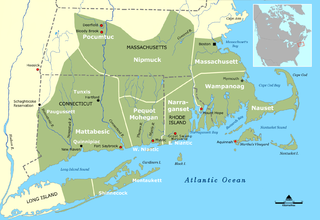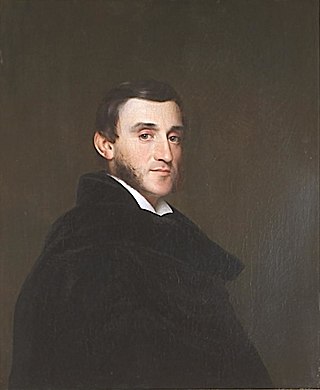Related Research Articles

Roger Williams was an English-born New England Puritan minister, theologian, and author who founded Providence Plantations, which became the Colony of Rhode Island and Providence Plantations and later the State of Rhode Island. He was a staunch advocate for religious freedom, separation of church and state, and fair dealings with the Native Americans.

National Review is an American conservative right-libertarian editorial magazine, focusing on news and commentary pieces on political, social, and cultural affairs. The magazine was founded by the author William F. Buckley Jr. in 1955. Its editor-in-chief is Rich Lowry, and its editor is Ramesh Ponnuru.

William Frank Buckley Jr. was an American conservative writer, public intellectual, and political commentator. In 1955, he founded National Review, the magazine that stimulated the conservative movement in the mid-20th century United States. Buckley hosted 1,429 episodes of the public affairs television show Firing Line (1966–1999), the longest-running public affairs show with a single host in American television history, where he became known for his distinctive Transatlantic accent and wide vocabulary.

Revilo Pendleton Oliver was an American professor of Classical philology, Spanish, and Italian at the University of Illinois at Urbana-Champaign. He was one of the founders of National Review in 1955, and also was a co-founder of the John Birch Society in 1958, where he published in its magazine, American Opinion, before resigning in 1966. He later advised a Holocaust denial group. He was a polemicist for right-wing, white nationalist and antisemitic causes.
Roger Williams University (RWU) is a private university in Bristol, Rhode Island. Founded in 1956, it was named for theologian and Rhode Island cofounder Roger Williams. The school enrolls over 5,000 students and employs over 480 academic staff.
William Frank Buckley Sr. was an American lawyer and oil developer. He became influential in Mexican politics during the military dictatorship of Victoriano Huerta but was later expelled when Álvaro Obregón became president. He became wealthy due to his interests in oil exploration and speculation. Buckley was the father of ten children, including William F. Buckley Jr., the author and founder of National Review magazine, and James L. Buckley, a U.S. Senator from New York (1971–1977). He was the grandfather of author and humorist Christopher Buckley.

Portsmouth Abbey School is a coeducational Catholic, Benedictine boarding and day school for students in grades 9 to 12. Founded in 1926 by the English Benedictine community, the School is located on a 525-acre campus along Rhode Island's Narragansett Bay.
In American politics, fusionism is the philosophical and political combination or "fusion" of traditionalist and social conservatism with political and economic right-libertarianism. Fusionism combines "free markets, social conservatism, and a hawkish foreign policy". The philosophy is most closely associated with Frank Meyer.

Buckley School is an independent, K-9 day school for boys located on the Upper East Side of Manhattan, New York City, United States.

Frank J. Williams is a former Chief Justice of the Supreme Court of Rhode Island, a notable Abraham Lincoln scholar and author, and a justice of the Military Commission Review Panel.

Elisha Dyer was an American politician and the 25th Governor of Rhode Island.

Narragansett is an Algonquian language formerly spoken in most of what is today Rhode Island by the Narragansett people. It was closely related to the other Algonquian languages of southern New England like Massachusett and Mohegan-Pequot. The earliest study of the language in English was by Roger Williams, founder of the Rhode Island colony, in his book A Key Into the Language of America (1643).

William Thomas Sadler is an American stage, film, and television actor. His television and motion picture roles have included Chesty Puller in The Pacific, Luther Sloan in Star Trek: Deep Space Nine, Sheriff Jim Valenti in Roswell, convict Heywood in The Shawshank Redemption, Senator Vernon Trent in Hard to Kill, Death in Bill & Ted's Bogus Journey and Bill & Ted Face the Music, and Colonel Stuart in Die Hard 2. He played Matthew Ellis in Iron Man 3, Agents of S.H.I.E.L.D., and WHIH Newsfront. He also recurs as John McGarrett in the 2010 remake of the 1968 television series Hawaii Five-O, and the Boston boxing promoter and suspected drug dealer Gino Fish in the Jesse Stone television film series, opposite Tom Selleck. He also played Don in the 1992 movie Trespass starring Ice Cube, Ice-T and Bill Paxton.

Francis "Frank" Herbert Buckley is a foundation professor at George Mason University School of Law where he has taught since 1989. Before then he was a visiting Olin fellow at the University of Chicago Law School. He has also taught at Panthéon-Assas University, Sciences Po in Paris and the McGill Faculty of Law in Montreal. He practiced law for three years in Toronto.

Nicholas Brown III was the United States Consul to the Papal court from 1845 to 1853 and later was Lieutenant Governor of Rhode Island from 1856 to 1857, serving under Governor W. W. Hoppin.

Robert G. Flanders Jr. is an American attorney who is a partner at Whelan Corrente & Flanders. He is also the founder of Flanders and Medeiros.

The Rhode Island Royal Charter provided royal recognition to the Colony of Rhode Island and Providence Plantations, approved by England's King Charles II in July 1663. It outlined many freedoms for the inhabitants of Rhode Island and was the guiding document of the colony's government over a period of 180 years.
Vernon Countryman, was an American legal scholar at Harvard Law School who was an expert on bankruptcy and commercial law.
Traditionalist conservatism in the United States is a political, social philosophy and variant of conservatism. While (traditional) conservatism has been largely based on the philosophy and writings of Aristotle, Edmund Burke, and Joseph de Maistre, the American rendition has had many additions from Russel Kirk, who was a philosopher active around the 1950s.
References
- 1 2 "Carl T. Bogus". Contemporary Authors. Retrieved 1 September 2016.
- 1 2 3 4 "Carl T. Bogus". Roger Williams University School of Law. Retrieved 1 September 2016.
- ↑ "Carl T. Bogus CV" (PDF). Roger Williams University School of Law. Archived from the original (PDF) on 20 December 2016. Retrieved 1 September 2016.
- ↑ Kimmage, Michael (9 January 2012). "A Consequential Man". The New Republic. Retrieved 1 September 2016.
- ↑ Kabaservice, Geoffrey (11 December 2011). "William F. Buckley Jr.: Right Man, Right Time". New York Times. Retrieved 1 September 2016.